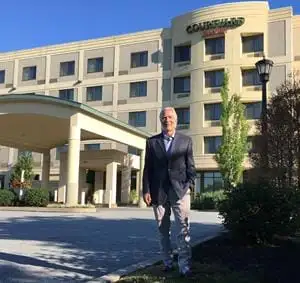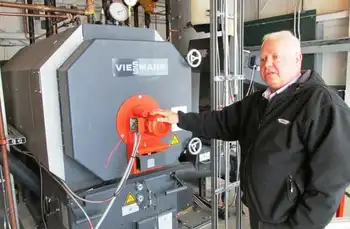Brisk sales of backup generators have towns awaiting permit filings
By Knight Ridder Tribune
NFPA 70e Training
Our customized live online or in‑person group training can be delivered to your staff at your location.

- Live Online
- 6 hours Instructor-led
- Group Training Available
Residents are installing a record number of stand-by, natural- gas-powered generators to ready themselves for power outages like the ones experienced during last October's recordbreaking snowfall. But many towns require permits for installing the generators to ensure the machines stand an adequate distance from property lines and flammable structures - a fact not all residents seem to know.
F. Robert Danni, Amherst assistant commissioner of building, says many of his town's residents are neglecting to file for permits, which could cost them $200 in fines. Amherst has had over 800 permit requests for stand-by generators since October, when most residents lost power for less than a week, although some lived in the dark for 10 days.
But Rich Bleichfeld, Amherst's senior electrical inspector, estimated hundreds more residents have installed the generators without paying the $100 for a permit. "It's kind of weird," he said. "You drive up, and you look at one at somebody's house, and you look next door, and there's one sitting there." Danni said he believes most people are not trying to evade Amherst law by neglecting to apply for a permit and are merely ignorant of the rule. But Bleichfeld said someone involved in the purchase and installation process - such as a generator retailer or professional installer - probably knew the resident needed a permit.
Amherst is only one of several local towns experiencing an increase in generator installation - and each town has a different permit rule. Tom Adamczak, supervising code enforcement officer for Cheektowaga - where residents lost power for at least four days in October - said the town started requiring a $25 permit last month because few residents had ever installed the generators until after the storm.
"We started worrying about fly-by-night operators," Adamczak said. "You listen to the radio, read the newspaper, and it seems like everyone is installing them.... It's only a matter of time before you get the shady character out there offering generators and just putting them in haphazardly." Adamczak said Cheektowaga will not fine residents for neglecting to secure a permit, but will require them to correct their mistake.
Wheatfield, where some residents lost power for three days in October, charges $75 for a permit, said Building Inspector Jennifer Caldwell. Clarence Senior Building Inspector David Metzger said the town started requiring a $50 permit because of the increase in installations after the October storm; residents lost power in Clarence for up to nine days.
The town will issue "hundreds of dollar " in fines, Metzger said, to those who do not secure a permit. Newstead and the City of Tonawanda require no permit, but residents must pay for an inspection from the New York Board of Fire Underwriters. Regardless of whether a town requires a permit, National Fire Protection Association code requires all residents to place generators at least 5 feet from any flammable structure, with the exception of some fire-rated brick houses, which is why Adamczak s id many towns have begun permit processes.
"It's really intended to provide a way to make sure that these are safely installed, not just in compliance with the zoning law, but in compliance with the standard, electrical, gas and so on," he said. "That's really our job, just to protect people." Patrick Cullinan, a certified electrical inspector with Commonwealth Electrical Inspection who inspects generators for insurance underwriting, said inspections can save residents money in the long run. "Homeowners don't realize that if they don't have something like this inspected, if there were a fire, their homeowners insurance may not cover them," he said.
Although Amherst charges a higher permit fee than many area towns, Danni said $100 "isn't that much" when compared with the thousands of dollars homeowners pay for the generators. David Flynn, store manager of the Cheektowaga Home Depot, says generators at his store run from $1,799 for a unit that runs a refrigerator, living room lights and television, a furnace and a hot water tank to $10,000 for one that powers a large home. Flynn said most homeowners buy a $3,000 unit that costs an additional $1,500 to install, which he said runs everything in an "average-size house." Flynn said Home Depot has seen strong generator sales since the October storm.
"Installed generator sales were just through the roof in the months following the storm," he said. "You're looking at a market that [had done] just a few of these per year. The demand for these is still strong."











